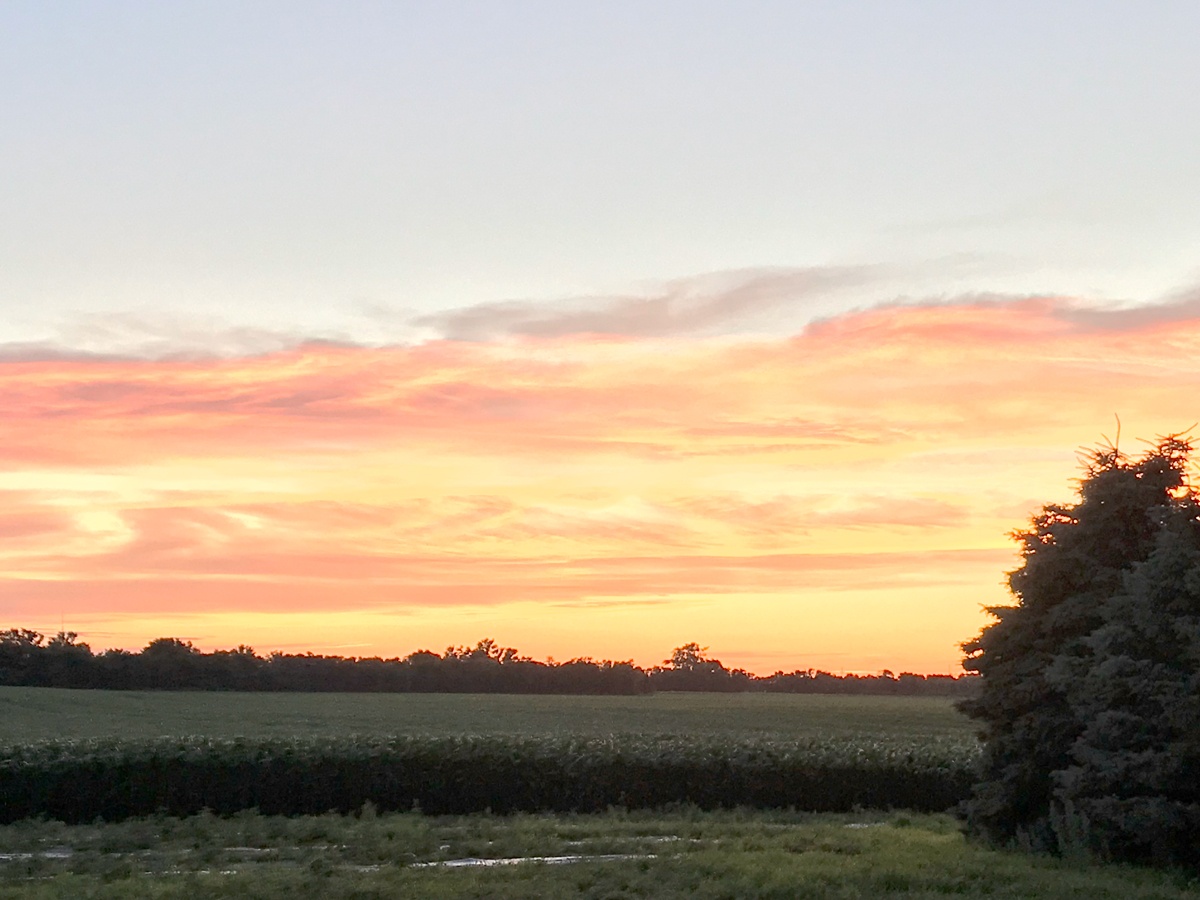Conservation Minnesota has begun a new phase in how we connect with issues and people around the state. I’ve recently changed roles from working in the east metro area to becoming the organization’s Food & Agriculture Program Manager. I grew up on a dairy and cattle farm and later spent time growing food on small-scale agriculture operations. I understand the importance of connecting agriculture and conservation and know that farmers are at the core of climate-resilient solutions on our land.
I recently hosted an online conversation with Conservation Minnesota members to discuss how climate is impacting agriculture and how we can create a vision for action and climate-resilient solutions across Minnesota’s agriculture industry and economy. This Climate Conversation was part of a series of events the Minnesota Department of Natural Resources (DNR) and Minnesota Pollution Control Agency (MPCA) is holding across the state. The goal of the conversations is to talk about our priorities on climate action, how to reduce the impacts and adapt to a changing climate, and how to ensure an equitable and sustainable future for Minnesota.
As a bipartisan organization, Conservation Minnesota is uniquely positioned to bring participants in our food system (hint: that’s all of us!) together at the table and focus on the most pressing agriculture issues we face here in Minnesota. Attendees were particularly interested in learning about:
- what farming practices and trainings are being used to help climate resilient agriculture,
- how to be supportive of farmers who are working toward positive change,
- how climate change is influencing farm management styles,
- the impact on water quality and conservation, and
- what practices others are utilizing that could be implemented here in Minnesota.
With members from across the state, we were joined by Michael Happ, Program Associate for Climate & Rural Communities at the Institute for Agriculture & Trade Policy. Michael offered expertise on federal agriculture policy like the upcoming 2023 Farm Bill and the proposed Build Back Better framework, as well as a variety of agriculture and conservation programs in Minnesota that benefit regenerative farming and soil health. The potential funding from Build Back Better includes:
- $5 billion to pay farmers to plant cover crops,
- $2 billion for agricultural research, and
- $27 billion in new conservation funding.
Farm Bill programming for conservation would also receive $22 billion in new funding. This influx of support for American farmers would incentivize climate-resilient practices and support our land stewards as we work toward carbon reduction.
In a state with some of the best agricultural research institutions and dedicated public policy support, Minnesota farmers can help to define the problems we face and help outline the solutions. Our farmers and institutions are integrating conservation practices and working to address climate resiliency with innovative and affordable practices to improve the economics of our farms and rural communities. Investing in our farmers to lead and innovate will help to stabilize the climate, reduce emissions, capture carbon, and incentivize scalable results to develop these new agricultural systems.
The need for them can’t be overstated—according to the USDA almost 1.7 billion tons of topsoil are washed or blown off our land each year, which results in farmers losing billions of dollars. Restorative farming methods, including no-till, could achieve up to 15 percent of the total carbon reduction our country needs to stabilize the climate, and soil health practices will help farmers conserve water by reducing evaporation by 80 percent. The time to act is now, and we are ready to get started.
